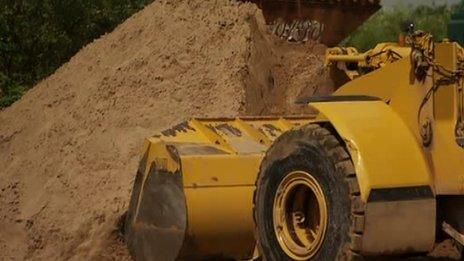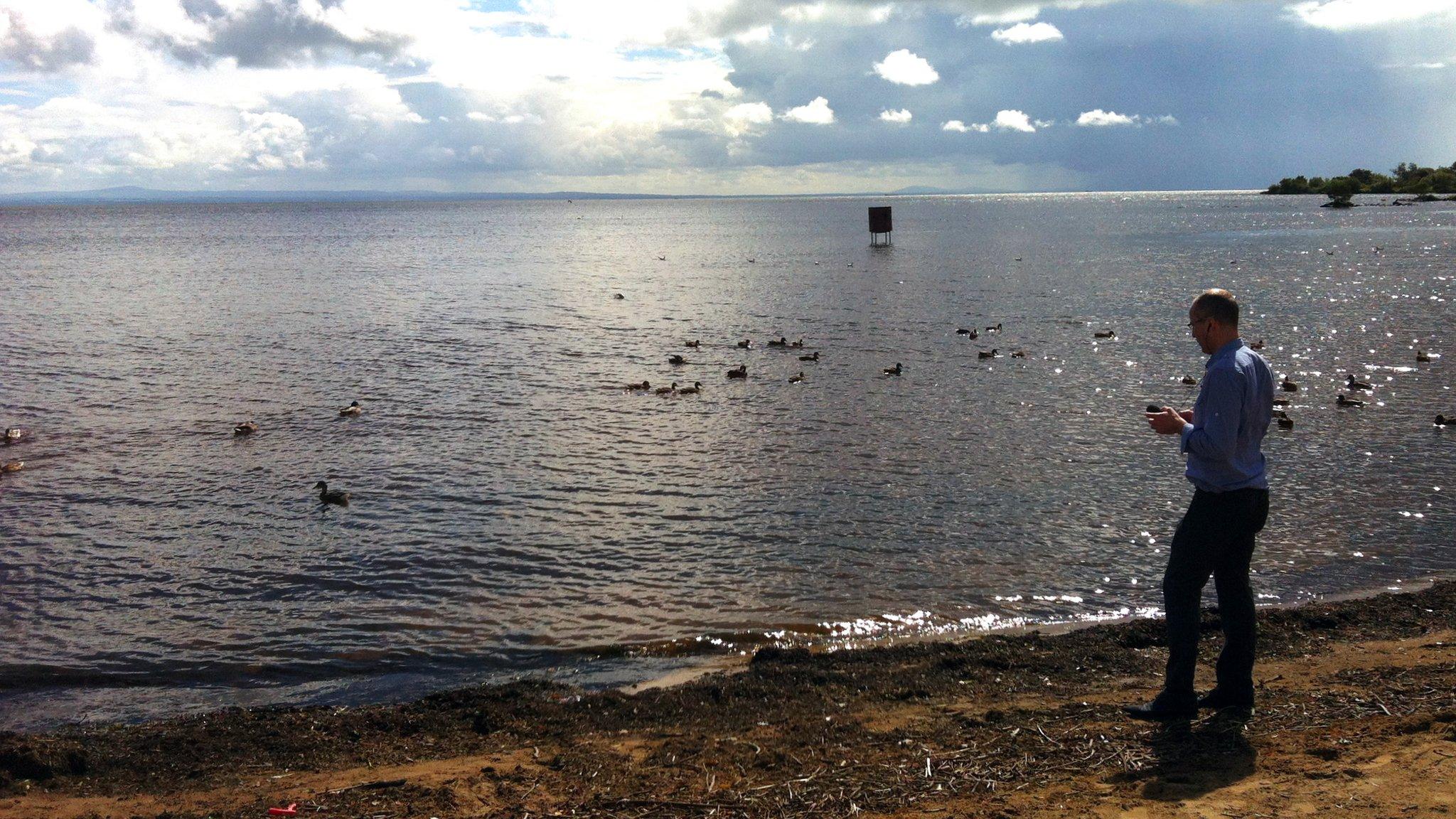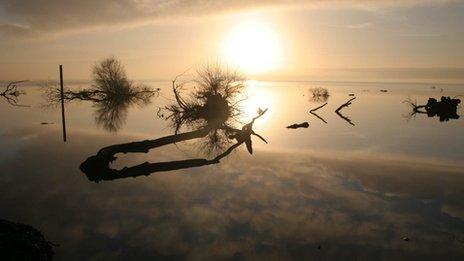DoE investigates Lough Neagh sand-dredging 'breaches'
- Published
Planning permission is needed for the dredging of sand from Lough Neagh
Investigations are under way into dredging for sand on Lough Neagh, with the government admitting it is happening without proper planning approval.
About 1m tonnes a year are removed for use in the construction industry.
Around 150 people are directly employed in an activity that has taken place for decades.
But it is only now that the Department of the Environment (DoE) has admitted there are problems.
Minister Mark H Durkan said: "It appears that a breach of planning control involving the unauthorised working of sand from the lough has been ongoing."
Mr Durkan was answering a series of questions from South Antrim Ulster Unionist MLA, Danny Kinahan.
The minister told him dredging, like mining, needed planning permission, but no records exist for it having been granted to any commercial operators.
'Partnership approach'
But Mr Kinahan said the enterprise must not be prevented.
"It should be allowed. It is the backbone of the construction industry. Certain groups claim it is being dredged illegally which is not quite fair.
"They have been self-regulating for years. It needs monitoring. We need a partnership approach."

About 1m tonnes of sand a year are dredged from the lough for the construction industry
The DoE said there is no evidence the ecology is suffering, but it has commissioned studies alongside two continuing investigations into dredging activities.
James Orr of Friends of the Earth said: "The DoE has known something has been happening.
"These sand operators have been on official DoE committees. It is not like they have been hiding. The DoE has capitulated."
A spokesman for the operators described the issue as "a technicality".
He said they were hoping to meet Mr Durkan to resolve the issue soon.
In his response to Mr Kinahan's questions, the minister said the DoE may "regularise or remedy" the breaches that appear to have been occurring.
- Published28 September 2012

- Published30 October 2013
.jpg)
- Published13 November 2013
